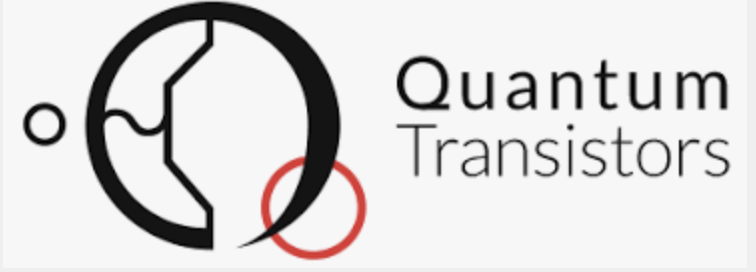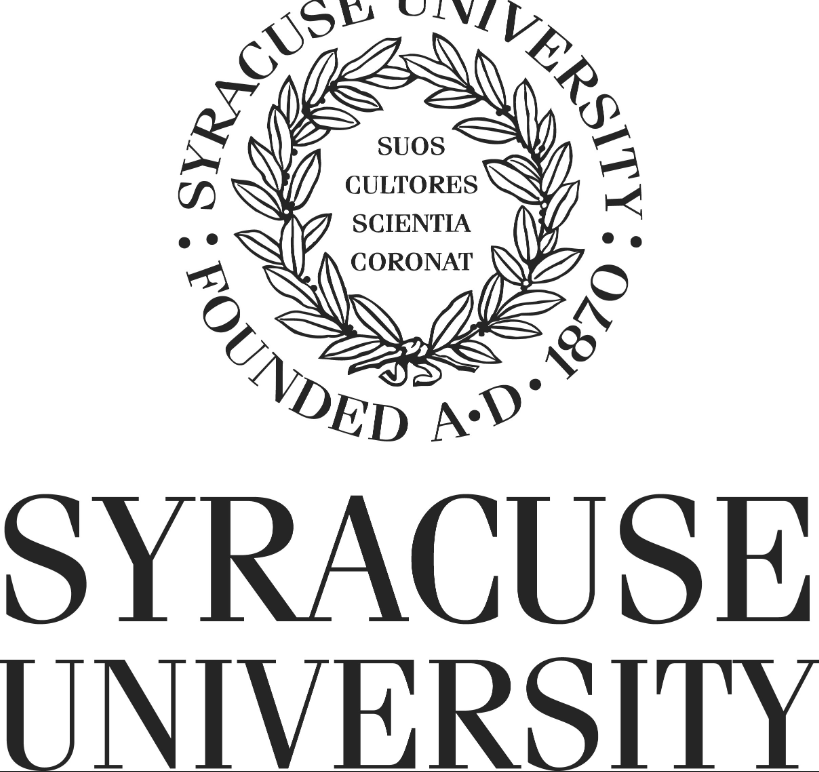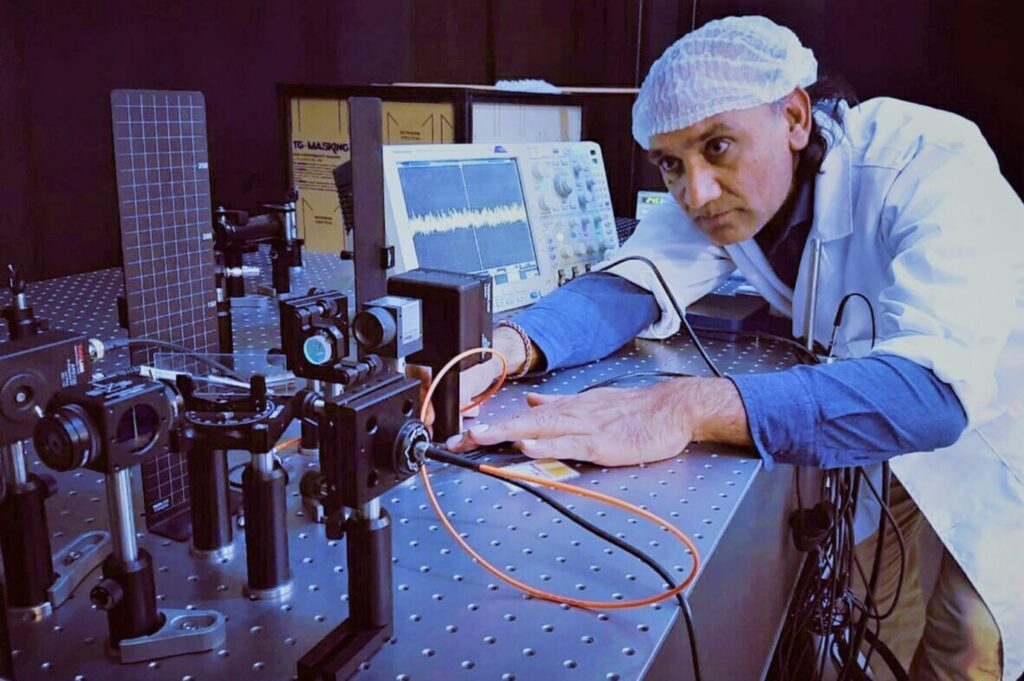
Continuing on from the last post on Scientific Advisors Shaping Quantum 2.0 For Industry, here’s Part 5 of the series, Advisors: 85–105.
*All data correct as of late August 2021
85. Eriz Zárate: Advisor, Quantum Mads
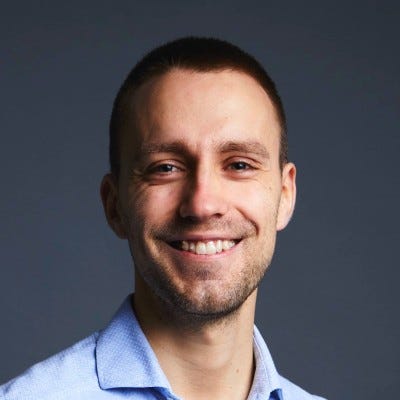
Not only is Eriz Zárate an Advisor at Quantum Mads, but he is also a co-founder.

With a technical interest that includes markets, entrepreneurship, reinforcement learning for stochastic control problems in Finance and AI, Zárate has a BPharm from the Universidad del País Vasco.
86. Michal Krelina: Researcher, Quantum Phi
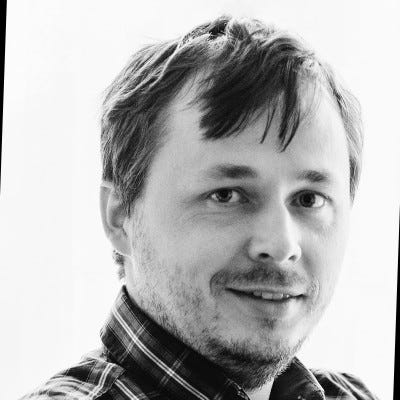
Michal Krelina: is the Founder and Researcher of the Czech quantum consultancy firm Quantum Phi.
A visiting scientist at Heidelberg University, Krelina is an enthusiast for science and quantum realms where his activities extend to high energy physics (HEP) and quantum technologies (QT).
In HEP he takes a particular interest in particle and nuclear physics (vector meson production, initial nuclear effects, direct photons, spin asymmetry, quantum chromodynamics) and research of quantum computing application in HEP. In quantum technologies, on the other hand, he is active in consulting, training, seminars, outreach activities, research and analysis of quantum technology applications, and quantum software development.
He received his Ph.D. in Experimental Nuclear Physics from the Czech Technical University in Prague.
87. Giuseppe Colucci: Consultant, Quantum Quants
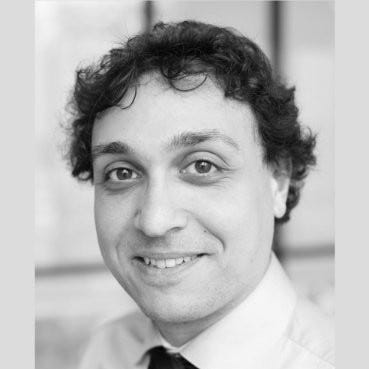
The Founder of quantum consultancy Quantum Quants, Giuseppe Colucci is also a Consultant for his company where he provides a full range of advisory services, including courses and workshops on quantum computing applications, feasibility studies on a wide range of businesses (from finance and data science to supply chain and material science) and implementation of prototype algorithms and models in existing quantum architectures.
An expert on quantum field theory, financial risk models and banking/ALM strategy, Colucci started Quantum Quants to show the power and possibilities of quantum computing and enjoy the development and implementation of quantum algorithms in real applications.
Colucci developed an interest in quantum computing since his Master’s in Theoretical Physics and is currently active in publishing academic papers on applications of quantum computing to finance and data science. He is currently also a senior ALM specialist at de Volksbank N.V.
Colucci has a Ph.D. in Theoretical Nuclear Physics from J.W Goethe University.
88. Francesco Giacosa: Consultant, Quantum Quants
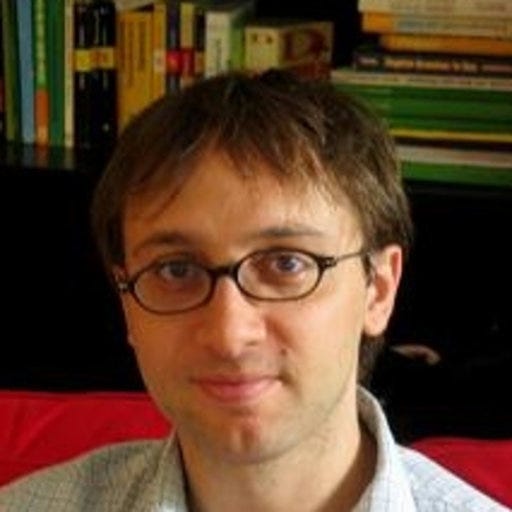
Francesco Giacosa is a Consultant is at Quantum Quants and a Professor teaching a course on quantum computing at the Institute of Physics, Jan Kochanowski University (Poland) and Privatdozent at the J.W. Goethe University, Frankfurt.
Giacosa obtained his Ph.D. in Physics from Tuebingen University, Germany.
89. Alex Khan: Advisor, QuSecure, Principal Consultant, Advisor and Researcher in Quantum Computing, Aligned IT
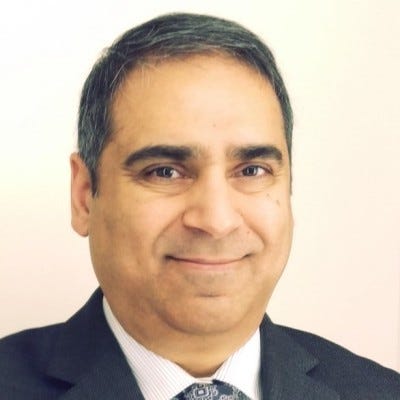
Alex Khan has the honour of being an advisor at QuSecure and Aligned IT, though in the past was an advisor to Quantum Thought and Qubit Engineering, too
An experienced business-technology executive with a demonstrated history of delivering results in the healthcare, insurance and financial verticals in leading-edge technologies, he is now working with various quantum computing organizations (startups and educational institutions) to bring real-world quantum computing examples to the ecosystem and show quantum advantage. Khan is skilled in strategic planning, leading software product development, managing IT operations, and conducting research.
In quantum tech his key areas of interest are in the impact of quantum computing on IT, the strategic recommendations for CIOs based on quantum computing advancements, the implications of quantum computing on AI, encryption, communications and future IT strategy, quantum computing optimization and AI implementations in healthCare, insurance and finance, the optimization solutions using D-Wave Annealing Quantum Computer, benefits of quantum speedup on current optimization models, and benchmarking quantum algorithms on the IBM-Q, AWS Braket, QCWare Forge, Azure Quantum and others.
Khan is Corporate Faculty at Harrisburg University and teaches quantum computing at the undergraduate and graduate levels. In addition, he is currently leading a joint quantum security project between the University and QuSecure and starting an experimental project on BB84 using IonQ in collaboration with the University of Strathclyde.
Until the spring of this year, he was the Chief Product Officer at Chicago Quantum where he co-published research in the area of financial portfolio optimization using D-Wave quantum annealer and other digital methods. He is also a co-researcher on a COVID herd vs lockdown optimization using D-Wave.
Khan is in the middle of writing Quantum Computing Experimentation with Amazon Braket to be published by Packt in 2022.
He obtained his Masters in Engineering from Kansas State University and an MBA in Health Sector Management from Duke University. He has a certificate in Quantum Computing from MIT.
90. Yewon Gim: Scientific Advisor, Qunnect
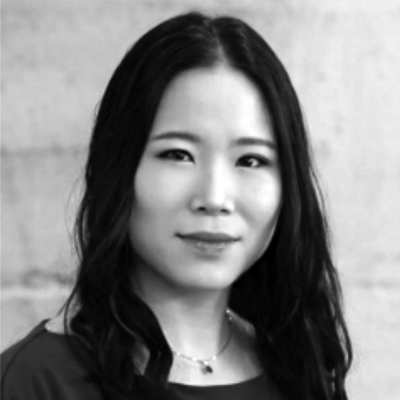
Yewon Gim is a Scientific Advisor at Qunnect, a startup building hardware to transform telecommunications infrastructure into scalable quantum networks.
Besides this, she is a Research Staff Member at Caltech where some of her accomplishments have been to design and build a quantum teleportation network engineered to support stable long-distance operation and remote access as a part of the founding team, taken charge of optical component requirement assessment and procured the quantum optical devices and quantum compatible existing optical devices for the quantum teleportation network and evaluated and benchmarked each component for faithful simulation of the network design.
She is passionate about building with pieces that don’t appear to belong together at first glance. In the last few years, she has been extremely lucky to put this passion of hers into building a quantum technology program in AT&T Foundry with collaboration with excellent colleagues at Caltech, JPL, Fermilab and many other institutions. In her first year, she worked with the Caltech team to design and build our first POC quantum teleportation network. Based on this prototype, the team has iterated on the system to build a scalable and stable entanglement-based quantum achieving high-fidelity (<90%).
Yewon Gim obtained her Ph.D. in Condensed Matter and Materials Physics from the University of Illinois Urbana-Champaign.
91. Val Zwiller: Scientific Advisor, Qunnect
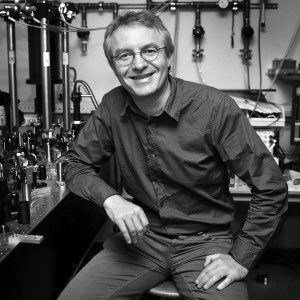
Val Zwiller is a Scientific Advisor at Qunnect, as well as being the CSO at Single Quantum, a startup developing photon detectors based on superconducting nanowires.
A Professor at the Department of Applied Physics, KTH Royal Institute of Technology, Stockholm, Zwiller’s teaching and research interests are in quantum optics, semiconductor nanostructures at the single-photon level.
Zwiller obtained his Ph.D. in Single Quantum Dot Optics from Lund University, Lund, Sweden.
92. Subir Sachdev, Advisory Board, QU Nu Labs
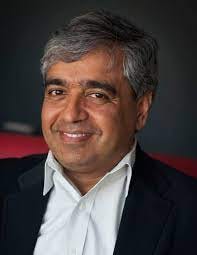
Subir Sachdev is on the Advisory Board at quantum-safe cryptography startup QU Nu Labs and a Herchel Smith Professor of Physics, Harvard University.
Specializing in condensed matter, Sachdev was elected to the U.S. National Academy of Sciences in 2014 and received the Lars Onsager Prize from the American Physical Society and the Dirac Medal from the ICTP in 2018.
Sachdev received his Ph.D. in Physics from Harvard University.
93. Bruno Fedrici: Consultant: Instructor, Qureca
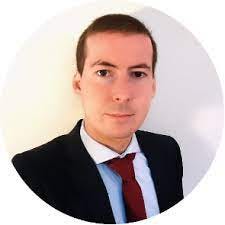
A Consultant and Instructor for quantum recruitment platform Qureca, Bruno Fedrici is a Visiting Lecturer at both INSA Lyon’s and CPE Lyon’s telecom departments where he introduces modern quantum programming and quantum-safe security solutions through two elective courses for the fifth year students who want to familiarize themselves with quantum technologies.
Actively contributing to the public and business awareness of quantum technologies by providing a bridge between higher education, research and industry, for three years now Fedrici has been introducing quantum computing basics and quantum-safe security solutions to executives and technical leaders as well as to computer science and engineering students. Fedrici has also helped develop “Quantum for Everyone” with Qureca. Currently, Bruno is also executing a role of a program manager at the new annual event “Quantum Business Europe”.
Fedrici has a Ph.D. in Quantum Information Science from The French National Centre for Scientific Research (CNRS) and a Ph.D. in Quantum Optics from the University of Nice Sophia Antipolis (now the Université Côte d’Azur).
94. Frank Konieczny: Strategic and Government Advisor, QuSecure

Along with his important work as a Strategic and Government Advisor at QuSecure — where he provides guidance on Government and Military market opportunities — Frank Konieczny is a Chief Innovation Officer at Patriot Cyber Defense.
Konieczny is a former CTO at US Air Force and CIO/CTO at AT&T Government Solutions and has served as VP and Chief Scientist at GRCI, as well as being a recipient of numerous achievements, excellence and leadership awards in the private and public sector.
Konieczny obtained a Master of Science, Computer Science Engineering from the University of Illinois, Chicago and a Master of Administrative Science from the University of Alabama, Huntsville.
95. Alexandre Tkatchenko: Advisor, Rahko
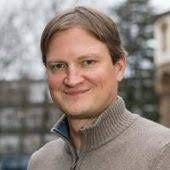
Alexandre Tkatchenko is an Advisor at Rahko, a startup developing quantum ML company to cut costs and time to discover and develop new drugs.
A Professor of Theoretical Chemical Physics at the University of Luxembourg, Tkatchenko and his group push the boundaries of quantum mechanics, statistical mechanics, and machine learning to develop efficient methods to enable accurate modelling and new insights into complex materials.
He has been an Alexander von Humboldt Fellow at the Fritz Haber Institute of the Max Planck Society in Berlin. Between 2011 and 2016, he led an independent research group at the same institute.
Tkatchenko has given more than 200 invited talks, seminars and colloquia worldwide, published more than 130 articles in peer-reviewed academic journals and serves on the editorial boards of Physical Review Letters and Science Advances.
He has received a number of awards, including the Gerhard Ertl Young Investigator Award of the German Physical Society, and two flagship grants from the European Research Council: a Starting Grant in 2011 and a Consolidator Grant in 2017.
Tkatchenko received his Ph.D. in Physical Chemistry from the Universidad Autonoma Metropolitana in Mexico City.
96. Gábor Csányi: Advisor, Rahko
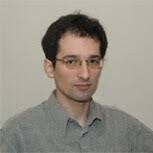
To say that Rahko is loaded with talented scientific minds is an understatement. And Gábor Csányi — a Professor of Molecular Modelling at the University of Cambridge who obtained his Ph.D. from MIT — just goes to prove that along with Tkatchenko and the others I have yet to mention, this statement is quite clearly true.
Csányi’s expertise is in atomistic simulation, particularly in multi-scale modelling that couples quantum mechanics to larger length scales. He is currently engaged in applying ML and other data-intensive techniques to materials modelling problems, such as deriving force fields (interatomic potentials) from ab initio electronic structure data, while also interested in statistical problems in molecular dynamics, e.g. in enhanced sampling algorithms that can be used explore the global configuration space of materials and molecules.
97. Mike Payne: Advisor, Rahko
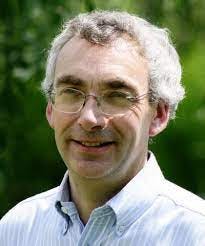
Theoretical physicist and Chair of Computational Physics at the University of Cambridge, Director of the EPSRC Centre for Doctoral Training in Computational Methods for Materials Science and Fellow of Pembroke College, Mike Payne is an Advisor at Rahko whose professional pursuits are in the field of computational physics and theoretical condensed matter physics.
Payne is the creator of the first principles total energy pseudopotential code CASTEP and has been involved in the development of the linear scaling code ONETEP. He was the 23rd most highly cited Physical Scientist in the UK between 1990 and 1999 and has published more than 280 papers that have had over 35,000 citations.
He was awarded the 1996 Maxwell Medal and Prize by the Institute of Physics and gave the 1998 Mott Lecture. He was elected Fellow of the Royal Society in 2008 and awarded the Swan Medal and Prize by the Institute of Physics in 2014. In 2011 he was made an honorary fellow of the Institute of Physics. He was head of the Theory of Condensed Matter (TCM) group in the Cavendish Laboratory at the University of Cambridge until 2013.
98. George Booth, Advisor, Rahko
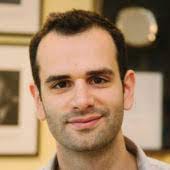
George Booth is a Reader in Theoretical Physics, King’s College London and another elite academic Advisor whose expertise and research interests in the interactions between electrons and nuclei and the development of novel computational methods to accurately simulate these many strongly interacting particles are helping Rahko achieve its future goals.
Booth joined King’s College London in October 2014 as a Royal Society university Research Fellow and proleptic lecturer. In September 2019 he became a Reader in Theoretical Physics. He has worked as a Postdoctoral Research Associate at both the University of Cambridge and Princeton University. He also held posts as a Junior Research Fellow at Trinity College, Cambridge and as a fixed-term lecturer at the University of Cambridge.
He has a Ph.D. in Theoretical Chemistry from the University of Cambridge.
99. Jonathan Tennyson: Advisor, Rahko
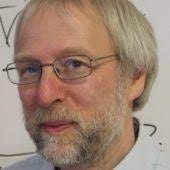
One more Advisor to add to Rahko’s impressive cadre of academic minds is Jonathan Tennyson, the Massey Professor of Physics and Head of Department at the Department of Physics and Astronomy, University College London, Chief Scientist at Quantemol Ltd and Chair of Blue Skies Space Ltd.
Tennyson is an author of over 700 scientific papers focusing on applications of molecular spectroscopy to problems in astrophysics, atmospheric science, plasma physics and other fields. He has written a number of popular science articles. He wrote the undergraduate textbook Astronomical Spectroscopy: An Introduction to the Atomic and Molecular Physics of Astronomical Spectra and is the Leader of the ExoMol project, a database of molecular line lists that can be used for spectral characterization and simulation of astrophysical environments such as exoplanets, brown dwarfs, cool stars and sunspots.
Tennyson was elected a Fellow of the Royal Society (FRS) in 2009. He has a DPhil in Theoretical Chemistry from the University of Sussex.
100. Cedric Weber: Advisor, Rahko
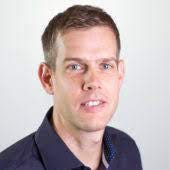
Cedric Weber is the final person on Rahko’s scientific advisory board, in the role since January 2020. A Senior Lecturer/Associate Professor at King’s College London where he leads a research group working in the field of quantum many-body physics.
Weber has authored more than 50 publications in the fields of quantum sciences, biophysics, statistical physics, and material sciences. His research interests focus on understanding and designing new quantum states of matter: high-temperature superconductivity, topological insulators, time crystals, Mott systems, entangled electrons, which lay the grounds for the future replacement of silicon technology and next-generation battery devices but also has an interest in AI and quantum computing to accelerate materials discovery.
Weber obtained his Ph.D. in Physics from EPFL, Lausanne.
101. Dan Browne: Advisor, Riverlane
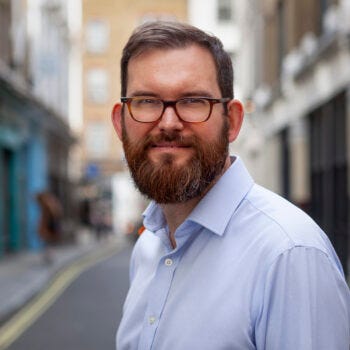
In tandem with his duties as an Advisor at Riverlane, a British startup developing software for quantum computers, Dan Browne is a Professor of Physics at University College London (UCL).
Brown has over two decades of experience in the development of quantum computing theory and leads a team at UCL. His research has spanned a range of topics, including architectures for quantum computing, such as measurement-based quantum computation, scalable approaches for quantum computing using photons of light and fault-tolerant quantum computation to enable reliable quantum calculations even when the fragile quantum components are error-prone.
Brown began his research in quantum computing during a DAAD pre-doctoral Fellowship at LMU Munich in 2000/01. He gained his Ph.D. from Imperial College, after which he became a Junior Research Fellow at Merton College, Oxford. Brown joined UCL as a lecturer in 2007 and was promoted to Professor in 2017.
Brown coordinates a European research network on quantum error correction and has a research leadership role in the UK National Hub on Quantum Computing and Simulation. Brown was Director of the EPRSC Centre for Doctoral Training in Delivering Quantum Technologies from 2015 to 2019.
102. Noah Linden: Advisor, Riverlane
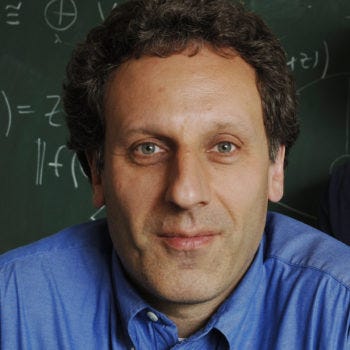
Noah Linden is a Professor of Theoretical Physics in the School of Mathematics, University of Bristol, as well as an Advisor at Riverlane.
Linden has made major contributions to quantum information theory and quantum computation, including work on the foundations of quantum computation, quantum computational architectures, non-locality and entanglement. For example, he rigorously established the role of multi-partite entanglement as a resource for quantum computational speed-up, provided widely used tools for the study of quantum non-locality and provided significant new insights into quantum mechanical features of thermodynamics.
He is currently Director of the Bristol Quantum Information Institute: the Institute is the umbrella organization for all quantum information and technology activities in the University of Bristol, across the entire spectrum from theory, experiment and training to commercialization.
Linden obtained a Ph.D. in Mathematics from the University of London and his main area of research is in quantum information.
103. Shayan Srinivasa Garani: Advisory Council, SheQuantum
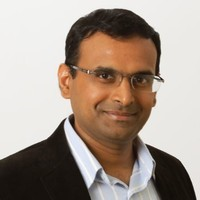
Shayan Srinivasa Garani is the first of more than a dozen experts advising the Indian quantum education platform SheQuantum.
Garani is an Associate Professor at the Indian Institute of Science within the Division of EECS. Prior to joining IISc, he was leading various research activities, managing, and directing research and external university research programs within Western Digital, California.
He was the Chairman for signal processing with IDEMA-ASTC and a co-chair for the overall technological committee. He holds 14+ U.S patents, many of which are put into products and 90+ research publications, covering a wide range of topics within physical data storage, quantum information processing, and artificial intelligence. He is the past Chairman (2018–2020) for the IEEE Data Storage Technical Committee, and for the Photonic Detection group (2015–2018) within the Optical Society of America. He was awarded Prof. Satish Dhawan state award in the field of engineering sciences for the year 2018. His current research interests in quantum science and technology include quantum error-correcting codes, quantum communications and coded quantum networks, quantum information theory and its applications.
Garani received his Ph.D. in Electrical and Computer Engineering from the Georgia Institute of Technology.
104. Peter McMahon: Advisory Council, SheQuantum
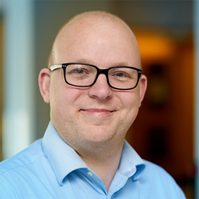
Peter McMahon is an Assistant Professor at the School of Applied and Engineering Physics, Cornell University, New York and on the Advisory Council for SheQuantum
McMahon’s lab — named eponymously The McMahon Lab — researches the physics of computation, and how physical systems can be engineered to perform computation in new ways that provide benefits over current CMOS-based von Neumann processors. It has a particular emphasis on quantum computation but also explores other candidate future computing technologies that are classical, including photonic computing and neuromorphic computing.
McMahon received his Ph.D. in Electrical Engineering, with a Physics minor, from Stanford University for research done on quantum information processing using optically controlled spins in semiconductors.
105. Lucas Lamata: Advisory Council, SheQuantum

Another scientist on SheQuantum’s Advisory Board, Lucas Lamata is also an Associate Professor of Theoretical Physics in the Department of Atomic & Nuclear Physics, Universidad de Sevilla.
His research has been focused on quantum optics and quantum information, including pioneering proposals for quantum simulations of relativistic quantum mechanics, fermionic systems, and spin models, with trapped ions and superconducting circuits. Lamata is also interested in new approaches to quantum simulation, as in the emulation of biological behaviours with quantum controllable systems, in the research line that he calls quantum biomimetics. He also analyzes the possibility of combining artificial intelligence and machine learning protocols with quantum devices.
Lamata enjoys working with experimentalists, and has made proposals and participated in 15 experiments in collaboration with up to 15 prominent experimental groups in quantum science. Up to 18 of his theoretical proposals for implementations have been carried out in experiments by top-flight groups.
Before that, he was a Humboldt Fellow and a Max Planck postdoctoral Fellow for three and a half years at the Max Planck Institute for Quantum Optics in Garching, Germany, working in Professor Ignacio Cirac’s Group.
He has more than 17 years of research experience in centers of Spain and Germany, having performed research as well with scientific collaborations in several one- or two-week stays in centres in all continents as Harvard University, ETH Zurich, University of California Berkeley, Google Santa Barbara, University of California Santa Barbara, Google LA, Shanghai University, Tsinghua University, Macquarie University, University of Bristol, Walther-Meissner Institut Garching, University of KwaZulu-Natal, IQOQI Innsbruck, Universidad de Santiago de Chile, among others. He has more than 100 articles in international refereed journals, including: Nature, Reviews of Modern Physics, Advances in Physics: X, Nature Communications, Physical Review X, APL Photonics, Advanced Quantum Technologies, Machine Learning: Science and Technology, Quantum Science and Technology, and Physical Review Letters, two of them Editor’s Suggestion. Overall, he has 24 articles in Nature Publishing Group journals, and 54 in American Physical Society journals, and 27 articles in the first decile (D1) journals.
Lamata received his Ph.D. in Physics from the Universidad Autónoma de Madrid (UAM).
Part Six coming soon!
The Quantum Insider (TQI)

Just in case this list hasn’t satisfied your cravings for data on scientific advisors in the quantum space, you can pop on over to The Quantum Insider (TQI), TQD’s very own data platform. Here you can find deep and insightful information on all aspects of the QIS industry.
TQI is an invaluable resource for journalists, researchers, investors, companies, and government agencies looking to extend their knowledge of the growing quantum tech ecosystem!
Deep Tech Insider (DTI)

Interested in other niches of deep tech? Good, TQD team has that covered, too: Check out the Deep Tech Insider, the best place for news on all that is happening in the world of deep tech.
If you found this article to be informative, you can explore more current quantum news here, exclusives, interviews, and podcasts.

















